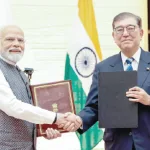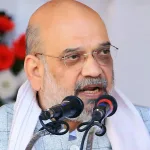Srinagar, June 3: The 41st annual group meeting of the All India Coordinated Research Project (AICRP) on Vegetable Crops began at Sher-e-Kashmir University of Agricultural Sciences and Technology of Kashmir Shalimar campus here on Saturday.
About 300 delegates, including ADG, Horticulture, Indian Council of Agricultural Research (ICAR), New Delhi; Director, Indian Institute of Vegetable Research (IIVR); vice chancellors of agriculture universities, directors and heads of various institutions and vegetable scientists from across the country are participating in the three-day annual meet hosted by SKUAST-K’s Division of Vegetable Sciences to discuss latest technologies, cutting-edge research and innovation in vegetable cultivation.
The objective of AICRP Vegetable Crops is to enhance the productivity, quality, and sustainability of vegetable production in India. It provides a national grid for multi-locational testing of vegetable technologies developed by various research institutes and state agricultural universities.
Moreover, AICRP focuses on promoting sustainable farming practices, minimizing chemical inputs, and conserving natural resources, thus supporting environmental sustainability.
Presently, the AICRP is running at 36 regular and 24 voluntary centres. SKUAST-K is a regular sub-centre of AICRP for the Humid Western Himalayan Region.
Vice Chancellor, SKUAST-K, Prof Nazir Ahmad Ganai, while welcoming the delegates of the country’s top agricultural universities and institutions, thanked ICAR-AICRP for holding the annual group meeting for the first time in Kashmir. He said vegetable cultivation plays an important role in both the food security of people and the livelihood security of the farmers.
Prof Ganai said that vegetable cultivation with the aid of the latest technology and knowledge has huge potential for job creation and wealth creation here as J&K presents a unique climatic setting and crop diversity. Kashmir is offseason for the rest of the country, and many of the crops we produce here are high-value niche crops, which remain in high demand, he said.
In reference to the recently introduced Holistic Agriculture Development Programme (HADP) in Jammu and Kashmir, Prof Ganai emphasized that the agricultural sector’s objective extends beyond food security. It now encompasses nutritional security, economic stability, and environmental sustainability through the adoption of knowledge-based and technology-driven agricultural practices.
ADG Horticulture, ICAR, Dr Sudhakar Pandey, in his address, while providing an overview of the vegetable production in India said there is a need for diversification as most of the research focus is on very few vegetables. “There is a need to add more vegetable crops in our research domain to overcome the productivity gap,” he said.
Director ICAR-IIVR, Varanasi, Dr TK Behera, presented the overall functioning of the AICRP and an overview of its various achievements in recent years. During the welcoming address, Dr Aijaz Ahmad Malik, the organizing secretary of the all-India meet, provided an elaborate overview of the diverse sessions and programs scheduled for discussion throughout the three-day conference.
Director Research SKUAST-K Prof Tariq Masood, and HoD Division of Vegetable Sciences, Prof Baseerat Afroza also spoke at the inaugural session. Project Coordinator AICRP Vegetable Crops, IIVR, Varanasi, Dr PM Singh presented the vote of thanks.
Apart from the annual report of AICRP, vegetable crops, several other publications of the division of vegetable science were released at the inaugural ceremony. Lifetime achievement award was conferred to ex-Vice Chancellor, SKUAST-K, Prof Nazir Ahmad and excellence awards to four former Heads of the Division of Vegetable Science, SKUAST-K. The best AICRP award for 2022 was given to the YS Parmar University of Horticulture and Forestry, Solan, Himachal Pradesh for its outstanding contribution towards research under the All India Coordinated Research Project on vegetable crops.





